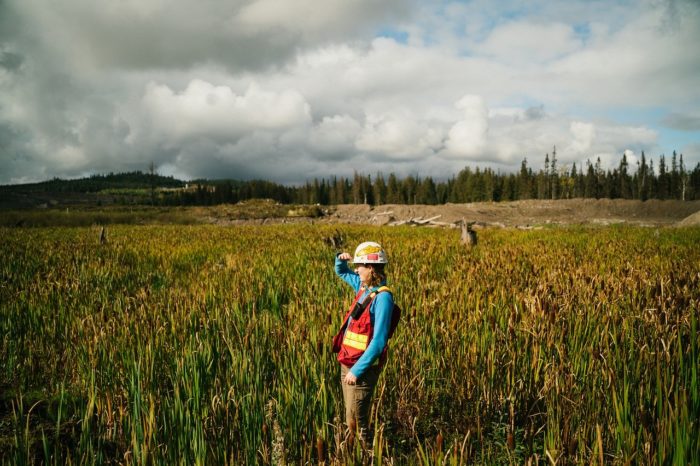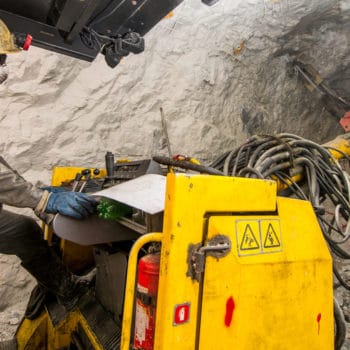Why We Love It
-
$105,720Potential Avg. Salary
-
10.4%Job Growth Rate
-
Growing DemandJob Outlook
-
Get to TravelCareer Attribute
Geologists study the Earth’s crust to obtain an accurate portrayal of the history, structure and composition. Their determinations are used for construction, to find minerals like coal, petroleum and oil or planning environmental protection measures.
Recommended Schools
What is a Geologist?
The following job responsibilities are common for Geologists:
- Studies the natural materials and processes of the Earth
- Investigates how, when and why certain kinds of rocks were formed
- Observes and studies rocks, fossils, and minerals to determine how Earth was formed
- Locates mineral, geothermal and petroleum deposits along with underground water resources
- Determines and researches the age or rocks, fossils, animal bones and prehistoric tools
A Day In The Life
Geologists are scientists that research and studies the physical characteristics of Earth. They use geological exploration to find rocks and their age and they also find minerals like natural gas, coal, oil and petroleum.
Geologists typically spend their days doing fieldwork. It is a physical job with lots of hours spent outside. Some geologists that work for the mining industry may spend the majority of their time underground. Geologists also spend a lot of their time in laboratories doing research on minerals and rocks.
Typical Work Schedule
This is not a typical 40 hour work week position. The hours are long and arduous and depending on your employer will require shift work positions.
Projected Job Growth
The need for geologists will increase at a steady pace resulting from the increasing number of environmental laws and regulations going into place.
Typical Employers
Geologists usually work for the government or in private industries with the majority employed by the oil and natural gas industries. Another group may also work as teachers at universities or colleges and some will teach earth sciences in high schools.
Recommended Schools
How To Become a Geologist
A Bachelor’s degree is required to work as a geologist. Courses like earth science, mineralogy, geology, physics, computer science and mathematics are all necessary classes to take. Field experience is also a requirement for this job.
This job requires not only an educations but also have additional skills as well like having a technical aptitude, being able to write comprehensive reports and being able to multi-task with good time management skills. Full knowledge of computer operations is vital for this position. A student must be skilled in digital mapping, data analysis, and computer modeling.
Geologist Salary Data
We’ve provided you the following to learn more about this career. The salary and growth data on this page comes from recently published Bureau of Labor Statistics data while the recommendations and editorial content are based on our research.
National Anual Salary
Low Range
$62,030Average
$105,720High Range
---National Hourly Wage
Low Range
$30/hrAverage
$51/hrHigh Range
---How do Geologist salaries stack up to other jobs across the country? Based on the latest jobs data nationwide, Geologist's can make an average annual salary of $105,720, or $51 per hour. On the lower end, they can make $62,030 or $30 per hour, perhaps when just starting out or based on the state you live in.
Salary Rankings And Facts
#55 Nationally for All Careers
Above Average Salary Nationally
Programs and Degrees
Here are the most common degrees for becoming a Geologist. a is usually recommended and specifically a degree or coursework that prepares you for the particular field, see below.
Highest Education Among Geologists
- 9.4% Doctorate
- 36.8% Masters
- 47.1% Bachelors
- 2.3% Associates
- 4.1% College
- 0% High School
- 0.3% Less than High School
Job Growth Projections and Forecast
2014 Total Jobs
36,4002024 Est. Jobs
40,200Job Growth Rate
10.4%Est. New Jobs
3,800How does Geologist job growth stack up to other jobs across the country? By 2024, there will be a change of 3,800 jobs for a total of 40,200 people employed in the career nationwide. This is a 10.4% change in growth over the next ten years, giving the career a growth rate nationwide of Above Average.
Growth Rankings And Facts
#176 Nationally for All Careers
Above Avg. Growth Nationally
What Companies Employ The Most Geologists
| Industry | Current Jobs | New Jobs Needed | % Increase |
|---|---|---|---|
| Oil and gas extraction | 8,000 | 1,000 | 1% |
| Engineering services | 6,200 | 800 | 1% |
| Management, scientific, and technical consulting services | 5,300 | 1,500 | 2% |












